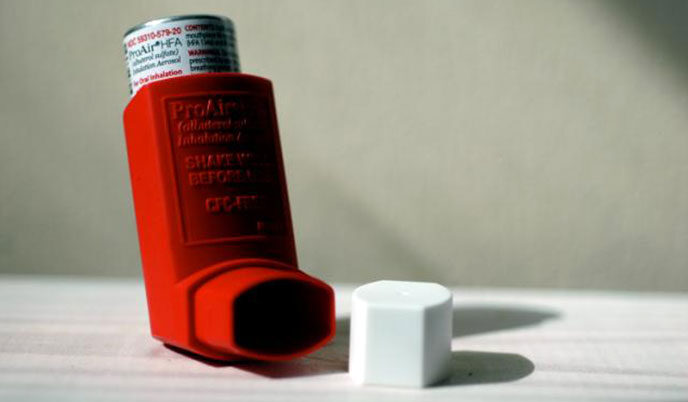
Antibody treatment reduces asthma attacks in children living in disadvantaged urban areas
A monoclonal antibody drug called mepolizumab decreased asthma attacks by 27% in children and adolescents who have a form of severe asthma, are prone to asthma attacks and live in low-income urban neighborhoods, according to a clinical trial sponsored and co-funded by the National Institutes of Health. The majority of the trial’s participants were Black and/or Hispanic—populations that have been under-represented in clinical trials and are at greatest risk for morbidity and mortality from asthma.

Study finds higher asthma rates among Black and Hispanic children regardless of neighborhood income or density
A new, large study found that although there is a correlation between childhood asthma and being born into a densely populated or lower-income neighborhood, Black and Hispanic children had consistently higher rates of asthma than white children even in more affluent neighborhoods.

UW enrolling expectant mothers, families for childhood asthma and food allergies studies
Researchers at the University of Wisconsin School of Medicine and Public Health are recruiting expectant mothers and families to join two new studies designed to help experts better understand the causes of two of the most common chronic diseases in children: childhood asthma and childhood food allergies.

UW to lead national research on pediatric asthma in low-income urban areas
The UW School of Medicine and Public Health has been selected as the national leadership center for a new clinical research network that will conduct pediatric asthma research in low-income urban settings around the country.

Respiratory allergies and allergic asthma may have protective mechanism in COVID-19
Respiratory allergy, asthma and controlled allergen exposure were associated with significantly reduced gene expression in a protein that the coronavirus uses to infect cells with COVID-19, according to a new study by the University of Wisconsin School of Medicine and Public Health.

Molds damage lung’s protective barrier to spur future asthma attacks
University of Wisconsin–Madison researchers have identified a new way that common Aspergillus molds can induce asthma, by first attacking the protective tissue barrier deep in the lungs.

University of Wisconsin-led study identifies why some colds cause asthma attacks in children
Upper respiratory infections remain one of the most common triggers of asthma attacks in children, but not every cold leads to a dangerous worsening of symptoms, even among children with severe asthma. The reasons for this have mostly gone unanswered for decades, but a new study led by the University of Wisconsin School of Medicine and Public Health provides some insight on what differentiates a cold that leads to an asthma attack from a cold that remains a cold.

Combination therapy for asthma in adults is safe, study confirms
Results from the largest asthma safety trial in the United States suggest that combination therapies containing both inhaled corticosteroids and long-acting beta agonists (LABAs) do not significantly increase the risk of serious asthma-related events as compared with inhaled corticosteroids alone.

Short-term high-dose inhaled steroids do not prevent asthma flare-ups in children
Temporarily increasing the dosage of inhaled steroids when asthma symptoms start to worsen does not effectively prevent severe flare-ups, according to a new University of Wisconsin–Madison study. And the common medical practice for children with mild to moderate asthma may be associated with slowing a child’s growth.

Exposure to pet and pest allergens during infancy linked to reduced asthma risk
Children exposed to high indoor levels of pet or pest allergens during infancy have a lower risk of developing asthma by seven years of age, new research supported by the National Institutes of Health reveals.